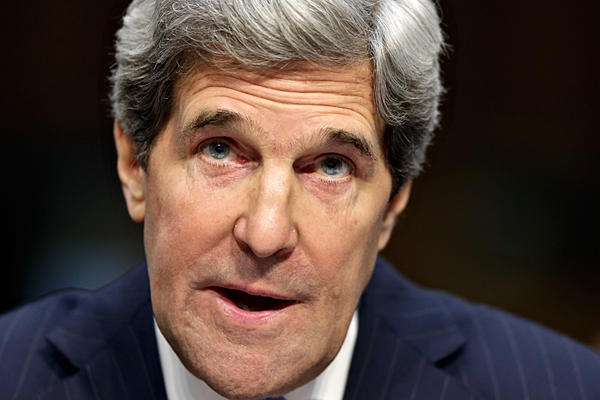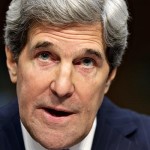
What exactly did John Kerry say?
An editorial from La Alborada
What did Secretary of State John Kerry say by telephone to his counterpart Elias Jaua? According to the New York Times, he expressed “concern” over Venezuela’s offer of asylum to Edward Snowden. The VOA in Spanish said that Kerry held a conversation with Jaua to communicate his interest in capturing Snowden, adding that “Kerry explained to Jaua that Snowden is accused of grave crimes, so that if he were to reach Venezuela, he should be returned to the US.” By these accounts, the telephone call was merely a diplomatic expression of concern.

On the other side of the Atlantic, the pro-monarchy Spanish daily ABC reported that someone with knowledge of what was said confided a long list of possible dire consequences for Venezuela if it did not comply, a list long enough that it would require review of a translated transcription of the call to follow all of the items. Among the consequences threatened was an embargo on refined fuels and additives, which could paralyze Venezuela. (See original in Spanish.)
Possibly, ABC cooperated by leaking the list of possible consequences –adding up to a requirement that Venezuela submit to the US or risk economic crisis– while allowing Kerry to maintain that he said nothing beyond diplomatic niceties. The State Department has not denied that such a list exists. For now, a furious President Nicolas Maduro has halted talks to reset the difficult relationship between the two countries.
A tit-for-tat exchange could be far-reaching. Venezuela, which has the world’s largest proven oil reserves, accounts for about 9% of US oil imports. The US would declare a national emergency if it lost that much oil of a sudden. Even before Snowden, the main target of the US in Latin America has been and still is Venezuela. Asylum for Snowden could be used as justification for a very hard line against Venezuela, while serving as a warning to other states in the region.
But shouldn’t the US have the right to defend its national security?
The US filed formal complaints involving Snowden with Russia –with which it has no extradition treaty– and China, but it has not warned them of dire consequences. It has already used several European states to play dangerously with the presidential airplane of Evo Morales, and according to the ABC report now threatens, if any Venezuelan airplane is suspected of carrying Snowden, to deny it access to the airspace of the US and of all of NATO’s other members, making clear who runs NATO.
At the same time, the US harbors a variety of people charged with or found guilty of major crimes in their home countries. Venezuela has repeatedly asked for the extradition of nationalized Venezuelan terrorist Luis Posada Carriles, for example, only to be ignored. Cuba would like to have repatriated characters who are dangerous to its national security, but they live here without a care, knowing that the US will not send them back to Cuba even as the US, without benefit of an extradition treaty, demands that Cuba expel people who have received asylum in Cuba, such as Assata Shakur. Several Ecuadorans living in the US are wanted for crimes against individuals or the state, but the US is not about the give them up.
The US shelters, among other Bolivians, a former president and a minister of defense who are wanted for trial for a 2003 massacre during the Gas Wars. They were charged before Evo Morales was elected, and by the justice system of that time. These outlaws have been granted asylum formally or informally by the US. Bolivia is in no position to threaten the US, nor does it attempt to, but the cases mentioned show that rendition or extradition of certain people are available only to nations that, like the US, can impose their will on others.
What did Snowden do? He revealed the immense scale of automated spying by the US government, not just on its own people, but on other countries and diplomatic legations. Other nations, according to the US, are not allowed to recognize Snowden’s actions as those of a political dissident, the kind that the US purports to protect. Other nations are expected to accept they are being spied on by the superpower, and in fact to cooperate with the US in turning in whistleblowers who reveal inconvenient truths.
There is no question that the US and NATO exercise a power that most other countries cannot match. Other countries, however, are growing more and more distant from the US, especially in Latin America and the Caribbean, and not without reason. Even former empires like the UK, France, Spain, and Portugal, and Italy as well, leading members of NATO, were moved like pawns by a hidden US hand in a gambit to force down a plane carrying the Bolivian president, resulting in several of the nations involved apologizing to Bolivia and Latin America, while the US said not a word about its responsibility in the caper.
Until a short time ago, Kerry was expected to be a kinder and gentler manager of foreign affairs. For many countries, especially in Latin America, that illusion no longer exists.


